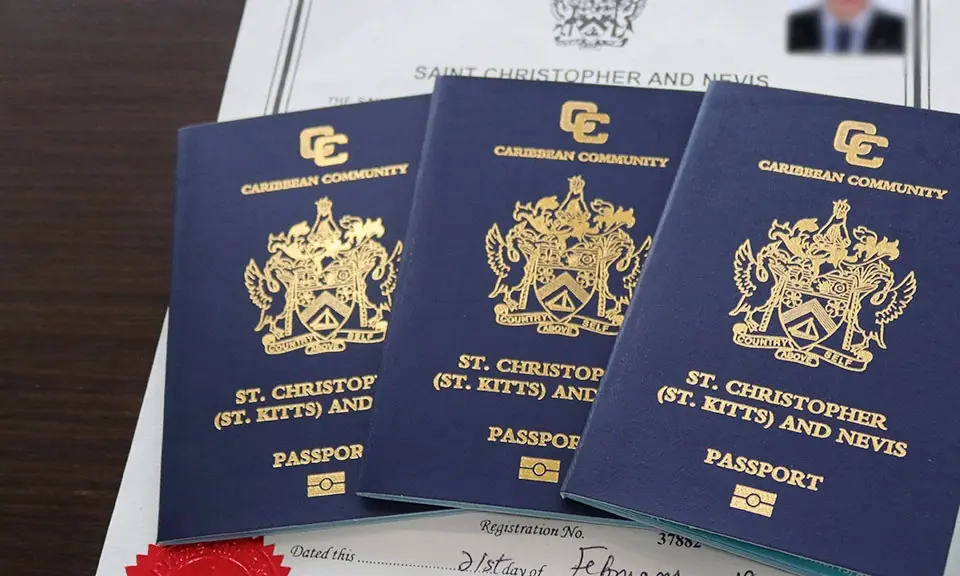Reflecting on the CBI Programme and Its Implications for Saint Vincent and the Grenadines
Over the past decade, the Citizenship by Investment (CBI) programme has been promoted by the opposition as a potential economic game changer if they are elected to office. However, many Vincentians lack a deep understanding of how the programme truly works, which makes it easier for narratives to be shaped and misinterpreted. At the core, opinions about CBI remain subjective; its success or failure varies significantly from one country to another.
Over time, many of us have grown wary of promises of quick and easy money, as these often resemble scams or risky financial schemes. It is essential to critically assess all aspects of such a proposal before forming a solid opinion.
Among the OECS countries already involved in CBI, the average minimum investment required is around USD $230,000 to $250,000. Now, let us consider what this would mean for Saint Vincent and the Grenadines. The government would not receive the full investment amount—CBI agents would take a commission, and fees for passport issuance and processing would also be deducted.
For discussion purposes, assume the country aims to generate USD $250 to $300 million annually through CBI. If we base the programme on an average investment of USD $250,000 per applicant, Saint Vincent would need approximately 1,200 successful applicants per year to meet this target. But is this level of consistent demand realistic?
Another issue to consider is due diligence. If a fixed quota must be met each year, there is a risk that pressure could mount to loosen screening standards just to keep numbers up. What happens if our neighbouring countries reduce their investment thresholds to become more competitive?
The recent situation with Dave Ames, who obtained Vincentian citizenship and was later revealed to be fraudulent, is a cautionary tale. Even with due diligence in place, individuals like that can slip through. Whether it is 5, 10, or 1,000 similar cases—once damage is done, it is hard to undo. Is that a risk we are willing to take?
In an effort to better understand the CBI process, I did some research. Typically, it takes 4 to 9 months for an applicant to be fully processed and for their investment to be finalized. That means even if we were to receive 1,200 applications in a year, the economic impact would not be felt immediately, despite what some may suggest.
For context, Grenada received over 2,000 CBI applications in 2023 but saw a sharp decline to around 400 in 2024. While this drop may partly reflect fluctuating demand, it also underscores how backlogs and administrative hold ups can discourage new applicants and slow the overall momentum of the programme. When processing delays mount, the resulting lag in revenue collection can significantly affect timelines for government projects and national development plans. This raises a critical question: if Saint Vincent and the Grenadines were to adopt CBI, how long would it truly take before the country begins to see any real economic returns? And if the opposition takes office, would the public expect immediate results, when in fact, implementation, vetting, and financial inflows could take months or even years to materialize?
Considering the current economic challenges and national debt, any CBI programme introduced would need to outperform regional counterparts and bring in revenue at record breaking speed just to meet expectations. Let us take a look at estimated total revenues earned by some OECS countries between 2019 and 2025 (in USD):
• St. Kitts and Nevis: ~$1.02 billion
• Grenada: ~$934 million
• Dominica: ~$232 million
• Antigua and Barbuda: ~$88.8 million
• Saint Lucia: ~$100 million
These figures are impressive but took several years to accumulate, while we can use our neighbors the real issue here is that the program has been in play by them for more than a decade and in some cases three decades. So how long would the opposition need to truly deliver on the change they promise? Realistically, it could take a decade or more.
Another overlooked consequence of CBI is the inflation of land and property prices. In many CBI participating countries, demand from wealthy foreigners has driven up the cost of real estate, making it increasingly difficult for locals—especially younger generations and low to middle income families—to afford land or housing. While foreign investment may bring macroeconomic benefits, it can simultaneously price Vincentians out of their own communities. Even now, without the CBI programme, property prices in Saint Vincent and the Grenadines are rising due to ongoing tourism related developments. Introducing CBI could worsen this trend, creating a housing market that caters more to foreign investors than to citizens.
Lastly, demand is unpredictable. Research shows that in 2024, most of these countries saw a decline in CBI applications, following a strong performance in 2023. This makes it risky to rely on CBI as the main pillar of economic recovery.
Given all these factors, perhaps the more practical approach is to allow the current administration to finish its ongoing projects, rather than taking a gamble on a new administration whose primary strategy appears to hinge on a single, uncertain solution—especially when no other substantial alternatives have been put forward




